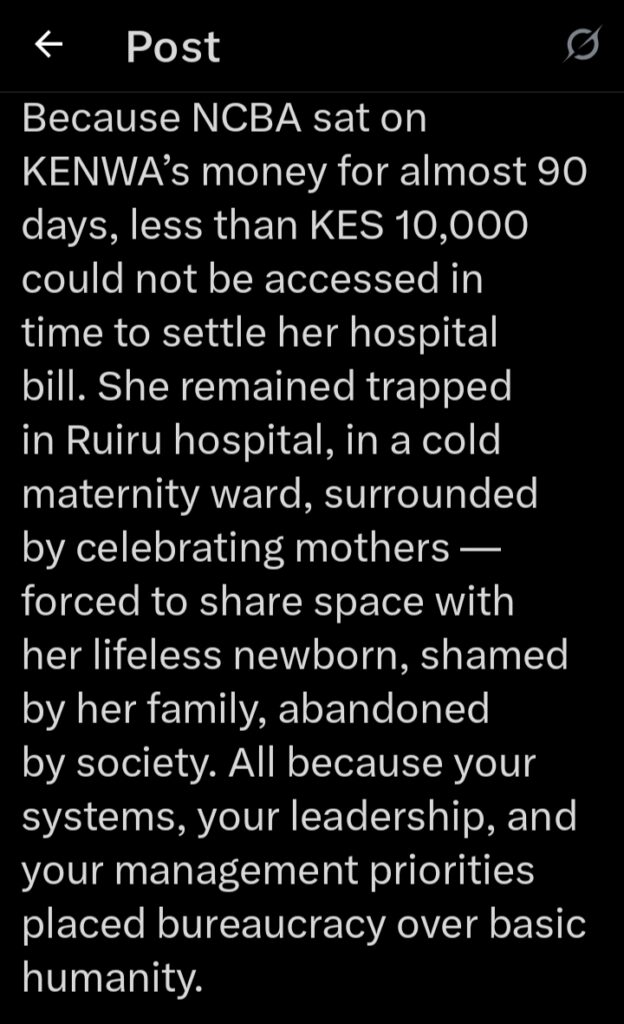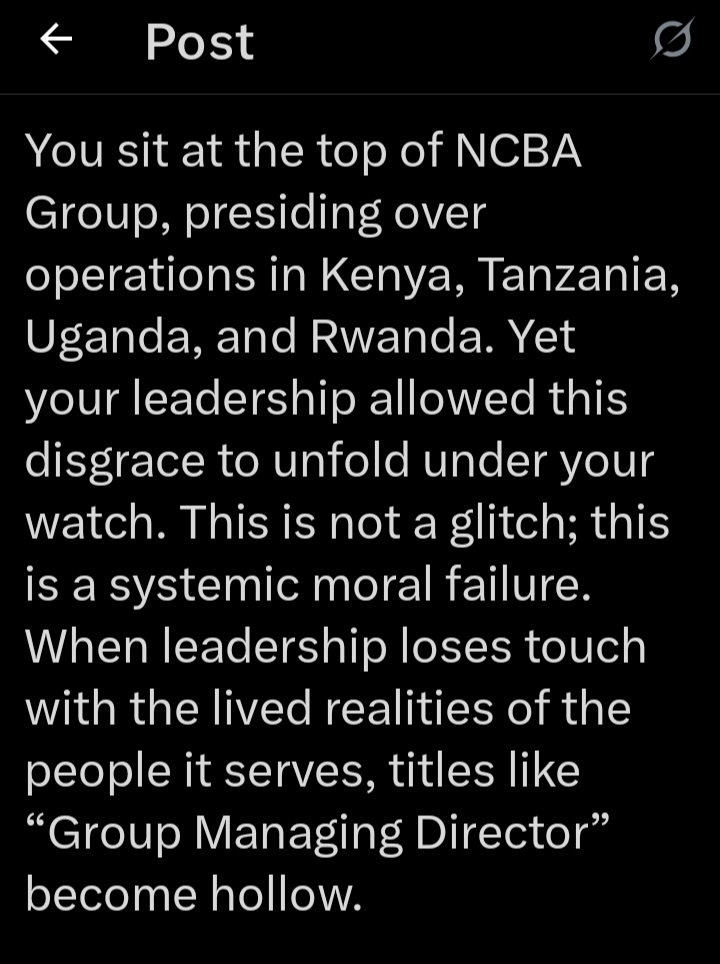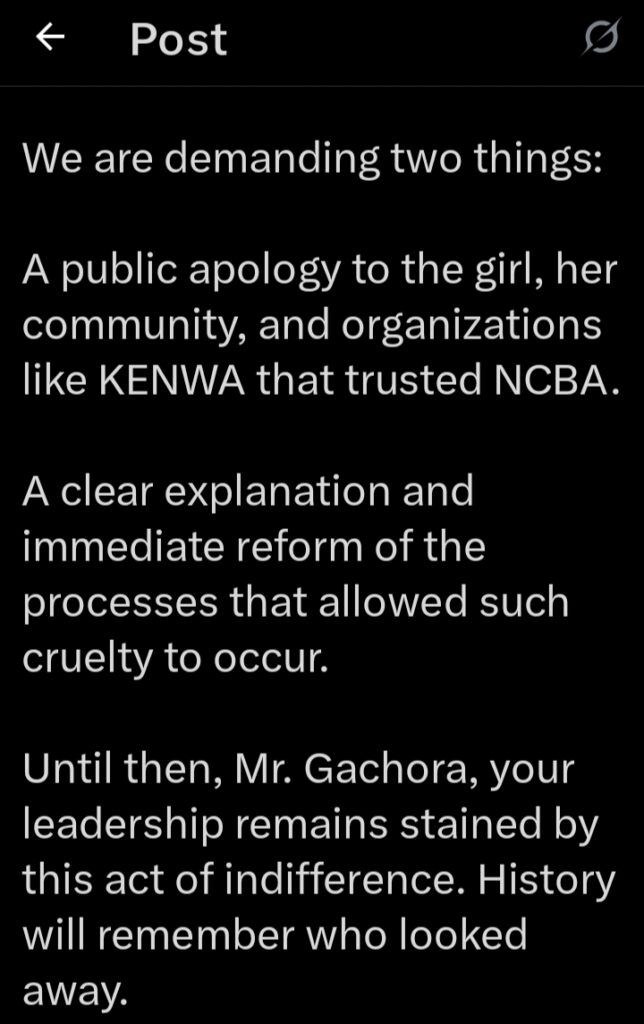A letter addressed to NCBA Group CEO John Gachora has sparked public outrage after it exposed the human cost of the bank’s delayed transactions involving the Kenya Network of Women with AIDS (KENWA).
The letter, written in a blunt and emotional tone, accuses NCBA of causing unnecessary suffering after a teenage girl was forced to spend a night beside the body of her deceased newborn due to a hospital bill that could not be settled on time.

According to the letter, KENWA’s funds were held by NCBA for nearly three months, preventing the organization from accessing less than KES 10,000 needed to pay the hospital.
As a result, the teenage mother remained confined in a maternity ward in Ruiru, surrounded by mothers celebrating their newborns, while she mourned hers.
The incident is described as a moral failure on the part of the bank’s leadership, questioning how such delays could happen under the supervision of one of Kenya’s largest financial institutions.

The author of the letter directly blames NCBA’s management systems and leadership choices, saying they put bureaucracy above compassion.
The message calls out Mr. Gachora, reminding him of his background as an electrical engineer who should understand the relationship between cause and effect.
It states that his leadership decisions created a painful chain of events that stripped a young girl of dignity in her most vulnerable moment.

The letter also criticizes the bank’s leadership structure, accusing the top management of being disconnected from the realities of ordinary Kenyans.
It singles out senior executives, suggesting that the bank has been run by leaders more focused on corporate image than human impact.
The writer argues that when those in power become too removed from the people they serve, their titles and strategies lose all meaning.It demands two actions from NCBA: a public apology to the teenage girl, her community, and organizations like KENWA that trusted the bank, and an immediate review and reform of the systems that caused the delay.
The letter insists that leadership must be held accountable not only for profits and expansion but also for the moral consequences of their actions.

The story has raised broader questions about how banks handle funds meant for community organizations and vulnerable groups. Many Kenyans have taken to social platforms expressing anger over what they describe as the loss of basic humanity in corporate systems.
For them, this case is a painful reminder that financial institutions can hold immense power over life and death decisions, often without realizing it.
The letter ends with a warning to Mr. Gachora that unless NCBA publicly accepts responsibility and takes corrective action, his leadership will remain defined by indifference rather than integrity. It concludes that history has a way of remembering those who had the power to act but chose to look away.





















Add Comment